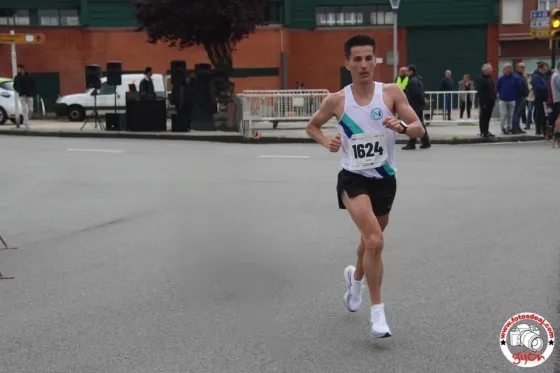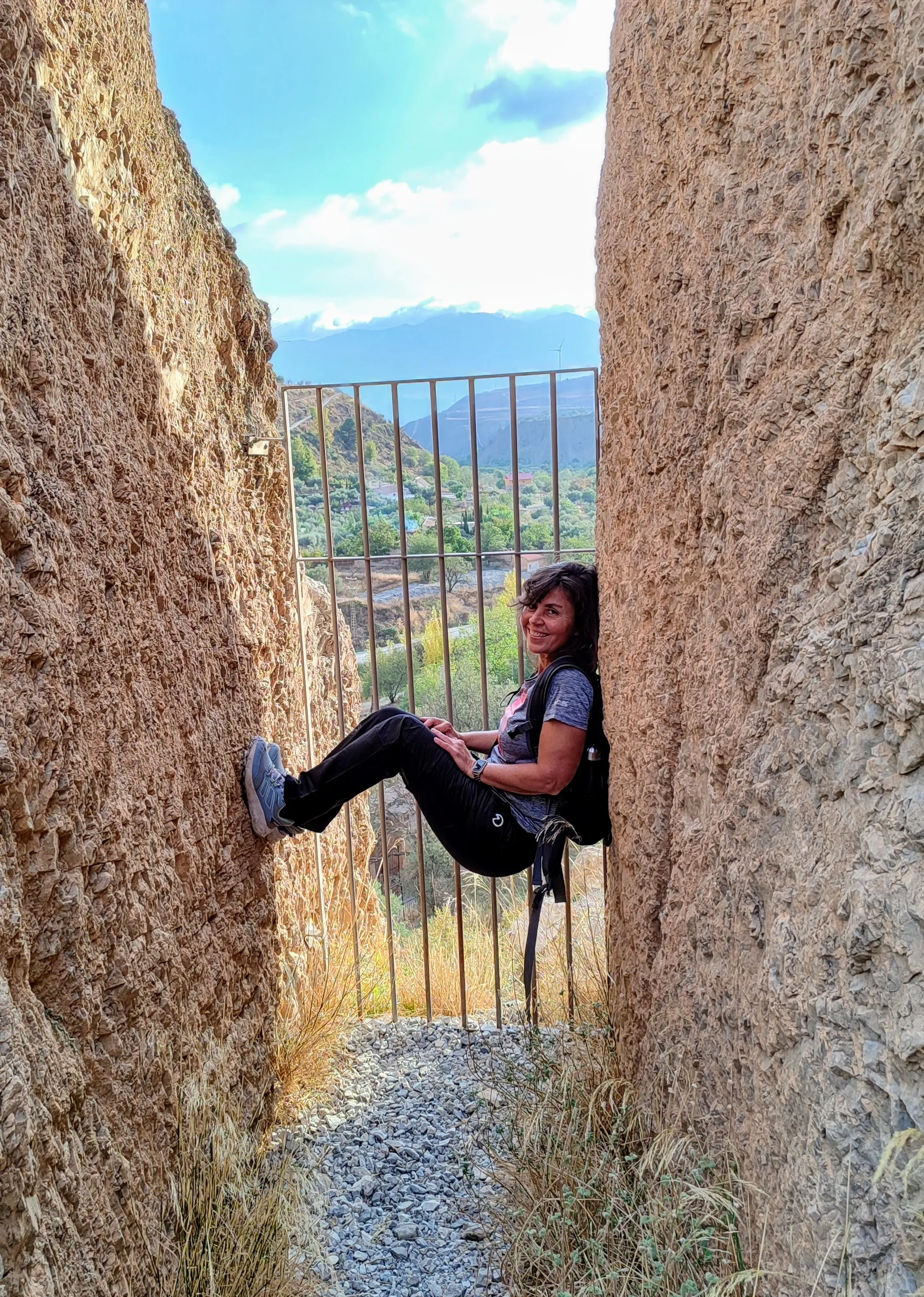Can anyone tell me if there are other types of sensors and applications to measure blood glucose?Freshle free is giving me many problems.Sometimes, readings regarding measurement with the strips have a deviation of up to 30 units, others wake me up in the middle of the night with false declines.Do you know any other brand?Thank you.Greetings.
No signature configured, add it on your user's profile.
It happens to me a lot, tomorrow I will go to the hospital to raise all that, in addition to the fact that the device has stopped working, so as soon as they give me some kind of solution I tell you.Greetings.
No signature configured, add it on your user's profile.
The solution they have given me is to return to glucose.
30 mg/dl difference is nothing, the last 3 of mine vary according to the hours between 60 -150 mg/dl;I had not made so many capillaries for 6 years.Above one of them or activated.
I have noticed that when I paid them directly to Abbott they failed me less than since the health system is given.It shouldn't be so, but it's my experience.
Lada enero 2015.
Uso Toujeo y Novorapid.
ruthbia said:
The solution they have given me is to re -strips glucose.
30 mg/dl difference is nothing, the last 3 of mine vary according to the hours between 60 -150 mg/dl;I had not made so many capillaries for 6 years.Above one of them or activated.
I have noticed that when I paid them directly to Abbott they failed me less than since the health system is given.It shouldn't be so, but it's my experience.
It is nonsense, each sensor that I put the variations are greater.Or they are focused on the development of FL3 or when entering the SS by having a greater demand its quality level has dropped.
Both 30 and 60 are very wide differences.It is not the same to be in 180 than in 120 or 140 ... we are talking about an A1C from 6% to 8%.If you call you always tell you that the differences are because they are interstitial vs. blood and are normal.
Db1 desde Diciembre 2007.
Fiasp y Tresiba.
FreeStyle Libre 2
Yesterday I had review with my endocrine and before entering I reviewed my values.
He told me that it seemed strange that I had neglected so much because I was on average per oak of 180mg/dl and my blood glyc is 6.2.(I had asked me analytics)
We talked precisely about how bad they measure and offered me an insulin bomb.I rejected it, I don't like the idea of a continuous catheter.
Lada enero 2015.
Uso Toujeo y Novorapid.
Thanks for your contribution.We have it raw if there is no other brand to manufacture these sensors.
I suggest sending emails continuously with our complaints, to see if these problems solve at once, because this, with a good functioning, is very useful.By phone they do not solve anything.Greetings.
No signature configured, add it on your user's profile.
ruthbia said:
yesterday I had review with my endocrine and before entering I reviewed my values.
He told me that it seemed strange that I had neglected so much because I was on average per oak of 180mg/dl and my blood glyc is 6.2.(I had asked me analytics)
We talked precisely about how bad they measure and offered me an insulin bomb.I rejected it, I don't like the idea of a continuous catheter.
Well, that is precisely what I would like to ask, the difference there is usually between the glycosilada that the free and the real calculates.,
Although it will depend on how the sensors have come out, of course ..
It seems that my daughter is being lucky and so far measure quite well, but we are going to see when it is analytical ..
Hija de 35 años , diabética desde los 5. Glico: normalmente de 6 , pero 6,7 la última ( 6,2 marcaba el Free)
Fiasp: 4- 4- 3 Toujeo: 20
regina said:
ruthbia said:
yesterday I had review with my endocrine and before entering I reviewed my values.
He told me that it seemed strange that I had neglected so much because I was on average per oak of 180mg/dl and my blood glyc is 6.2.(I had asked me analytics)
We talked precisely about how bad they measure and offered me an insulin bomb.I rejected it, I don't like the idea of a continuous catheter.
Well, that is precisely what I would like to ask, the difference there is usually between the glycosilada that the free and the real calculates.,
Although it will depend on how the sensors have come out, of course ..
It seems that my daughter is being lucky and until now they measure quite well, but we are going to see when it is analytical ..
In my experience the Freestyle gives a A1C at least 0.2 below the Real.That telling my last anlitic of July.Since then I have noticed a noticeable basis of the quality of the sensors.
I all incidence the report to Abbott, although they are subsidized by the SS, it seems to me a very expensive system for the reliability it offers and therefore before any failure always claim (they have at least 30 'every time you call).
Db1 desde Diciembre 2007.
Fiasp y Tresiba.
FreeStyle Libre 2
@Regina has always calculated me quite well the hemo except that I have had a bad sensor just before going to analyze.Sometimes it happens that if you lean on the sleeping sensor marks you all night when you are not and that is then the calculated glycate, even though the sensor goes well.That has also happened to me and it gives me something lower the calculated hemo than the real one.
My endocrine always makes me in analytics or capillary in the consultation because the sensor is not 100% reliable what it calculates.Still I almost always have 0.1 or 0.2 as much difference.
From my experience the Free is going very well when you have flat graphics, when there are usual ups and downs gives more differences.
DM1 desde 2003 | Toujeo + Humalog | FreeStyle 2 | HbA1c 5.5
I don't understand this very well.Why in "thank you flat" are there less differences?I believe that most diabetics have up and down.Please tell me if I'm wrong because this is very important for the topic we are dealing with.
No signature configured, add it on your user's profile.
Aalmu
11/17/2021 6:29 p.m.
Good afternoon, I keep paying the freestyle sensors although the SS already prescribes it since September, what happens is that they have not yet called me for the course (it's crazy, I know).Well, as I pay them, I have lots of care when it comes to putting it and activating it.I have realized that if you put them at least 36 hours in advance of their activation they are almost nailed with the capillary, so I spend two full days with a sensor on each arm.It is true that when there are ups and downs are out of control, but at least they warn you.I only take hair in case the free notifies me up or down.They also go better in the left arm than in the right.Because?No idea.They go better to me.
No signature configured, add it on your user's profile.
ruthbia said:
yesterday I had review with my endocrine and before entering I reviewed my values.
He told me that it seemed strange that I had neglected so much because I was on average per oak of 180mg/dl and my blood glyc is 6.2.(I had asked me analytics)
We talked precisely about how bad they measure and offered me an insulin bomb.I rejected it, I don't like the idea of a continuous catheter.
I do not understand the average above 180 and 6.2 glyc.Something is not right ...
One fact is real and the other of the sensor?I don't get it ...
DM 2 con páncreas agotado desde diciembre 2020. 51 años entonces.
HG diciembre 2020: 15.9. Última HG: enero 2025 6,1
Abasaglar 10 unidades. Metformina, 1000/0/1000. Humalog junior: 2 unid en desayuno y luego en función de lo que coma.
angngey said:
I don't understand this very well.Why in "thank you flat" are there less differences?I believe that most diabetics have up and down.Please tell me if I'm wrong because this is very important for the topic we are dealing with.
Abbott himself tells you in his free user manual the following:
"Glucose levels in interstitial fluid can be different
at blood glucose levels, which can mean that
sensor glucose readings are different from glucose levels in
blood.This difference can be seen during the periods in which
Blood glucose changes rapidly, like after meals,
of administering insulin or physical exercise. "
So if you are continuously with ups and dowering because the accuracy is normal that it is not good because it is changing the quick glucose every little.Imagine that you make 5 meals a day and you have 5 peaks because between which you go up and down you are almost all day in times of rapid change of glucose and precision may not be good.
Also the accuracy is given in %, it is not the same a difference of 10 % (to give an example, I do not know which is the maximum that Abbott gives) at a value of 100 that in one of 200 or 300. If you areNormally in high figures because you will have more variation with respect to capillary and would be within the normal thing that Abbott indicates.
According to my experience of several years using it, the sensor works better if they move in normal 70-150 glucose values more or less and is not stable or varied slowly.Below and above it usually gives more differences with the capillary.I am doing very well because I am almost always in those values, I do not usually get from 170 almost never and not low of 60 much.For example in the last 90 days I have 82% of the time between 70-150 and only 6% above (which above 170 is only 2%).And below 70 I have 12% that is partly for nights that step supported by the sensor and others because I am often in values between 60-70 stable and not as anything because I feel good.The precision that gives me with these values is almost the same as the capillary (there are not even 10 of difference, measuring with the reader himself).Moreover, I spend many days without making my hair and I correct without normally capillaries because I trust the sensor values (although this is not recommended, it is always necessary to measure before correcting with insulin).
They also give them problems when you are a long time below 60, there are people who make ketogenic diet and are many times in 50 for many hours and the sensor is usually spoiled, directly stops measuring and draws an error message.It is seen that Abbott has not taken that case into account and does not contemplate that there are people in those values for hours.This has happened to my sister with a sensor and I have seen on Instagram several more cases that complain that it stops working for that reason.
DM1 desde 2003 | Toujeo + Humalog | FreeStyle 2 | HbA1c 5.5
I use sensors for 5 years;The first 4 years I have paid them and the latter already financed.
In general, they have always measured me above my hair value.When I used Free 1 I had installed on the Glimp mobile to calibrate and with Free 2 I have Diabox.
I have had all kinds of sensors, but in 5 years, only 5 or 6 have approached the capillary when I have caught vein when inserted, but even the last ones that have caught vein, which were from the SS, fail to approach the hair value.
@isabelBota My real values in laboratory blood analytics are 6.2 glyc, the freeview/freelink gives me a calculated value of 6.7 and the 6.1 diabox.That is, as my sensors measure well above reality, they are not reliable, only the magnitude of the curve and variability.That is why the endocrine offered me a bomb.
The sensor active when I have already been inserted by about 12 hours.The same thing that happened with Free 1, if you have been better for hours, usually measure better and you have to activate it with stable glucose.I active at night that I am already calm, resting and I usually be very flat for hours.
Of Abbott step.I made a calibration report, I told you that the supplier identifier, to do correct fat tests, etc.(this one is a little) and they do not remedy.
Lada enero 2015.
Uso Toujeo y Novorapid.
angngey said:
Can anyone tell me if there are other types of sensors and applications to measure blood glucose?Freshle free is giving me many problems.Sometimes, readings regarding measurement with the strips have a deviation of up to 30 units, others wake me up in the middle of the night with false declines.Do you know any other brand?Thank you.Greetings.
My doctor told me about the sensors that the variation is because they measure in tissues while the strips measure in blood.And it is best to use the strips during food hours.
No signature configured, add it on your user's profile.
The same thing happened to me with Freestyle 1 and with the 2 ... so I put on the dexcom g6 that works great, yes, pay it from my pocket the a whopping of € 4,200 per year !!!!Because I don't want to put a bomb!
I do not understand why the SS wants to make a major expense to cover a minor one ...
I think at least we should take away VAT, we will discount the amount of what the freestyle costs to those who does not work and we want or need another sensor.
This is like insulin, each one is doing well.
I don't understand Abbot's exclusive ...
It smells weird ... don't you think?
And another thing that I wonder is what the diabetic associations are for if they do not throw a cable on these issues
Tresiba 14 unidades a las 14:00 horas
Novorapid a demanda,pluma júnior medias unidades
MCG Dexcom G6
43 años diabética 💪






